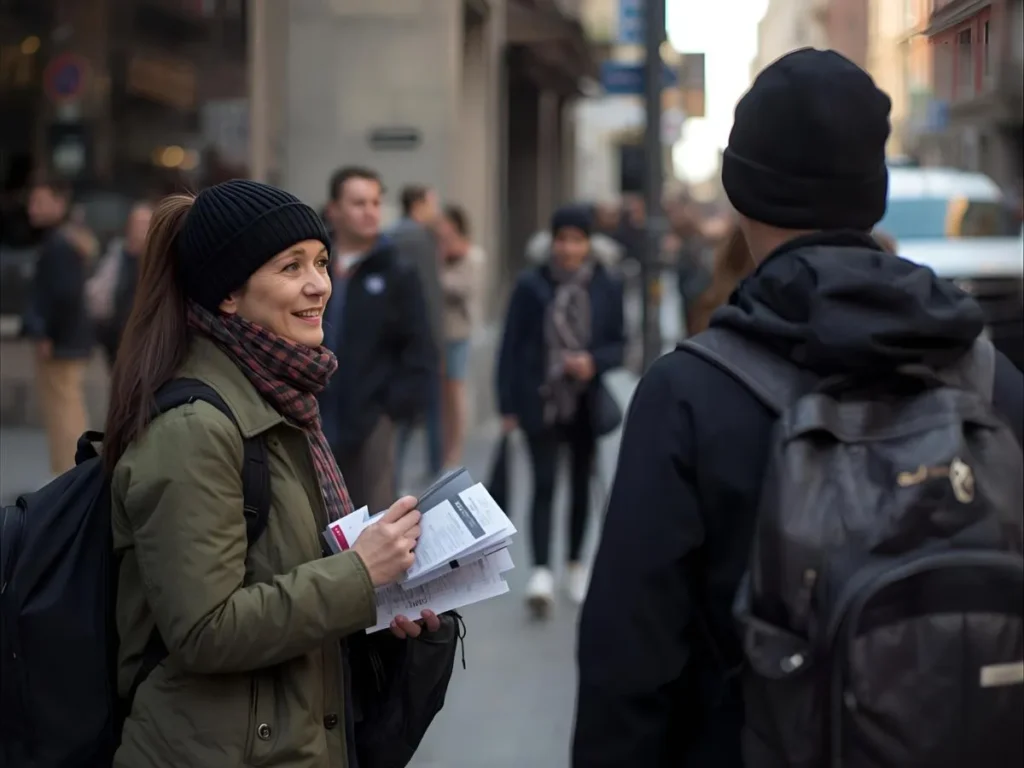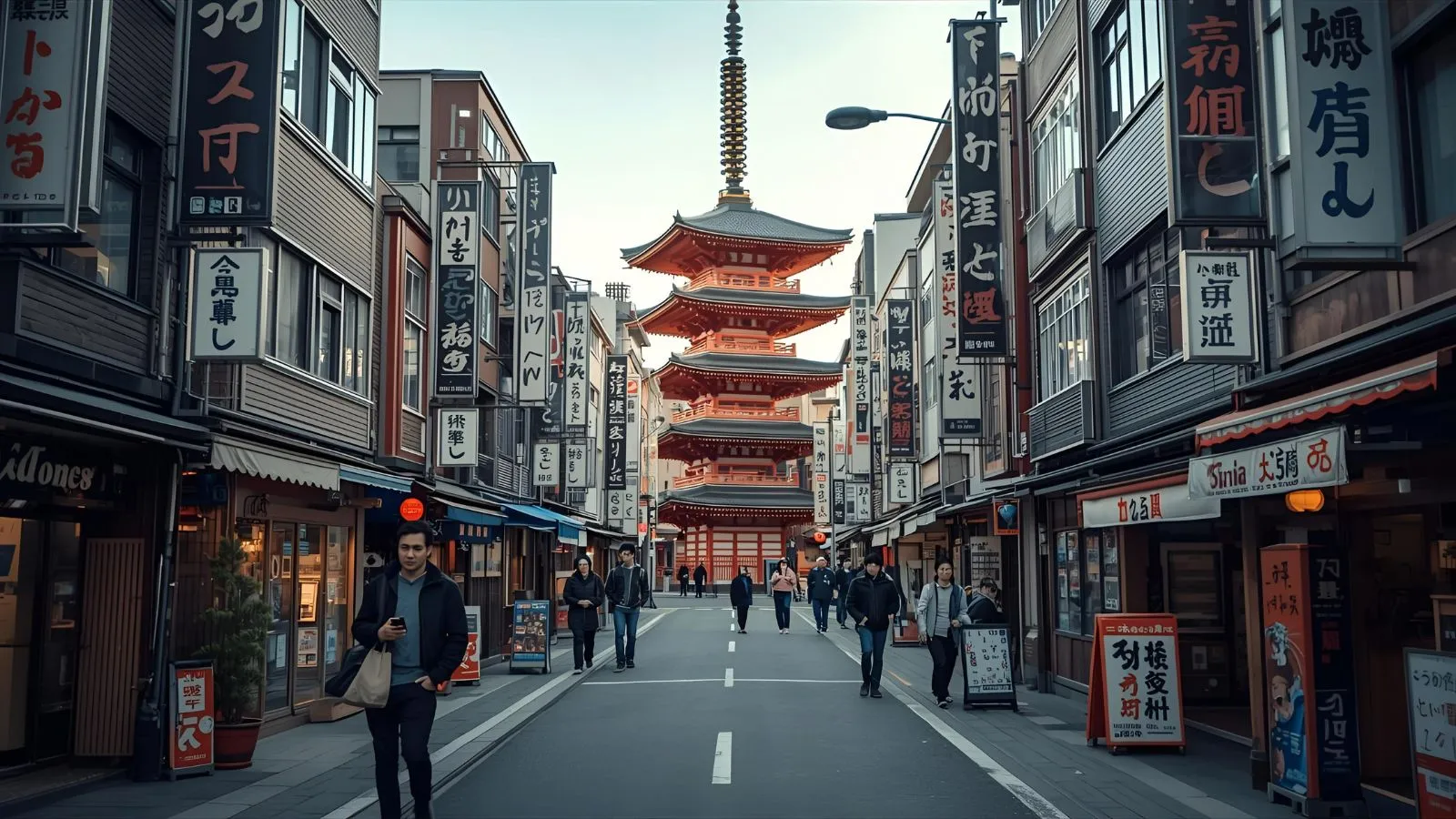Traveling to Japan is an unforgettable experience — from the neon-lit streets of Tokyo to the tranquil temples of Kyoto. But if you’re planning a trip, knowing common Japanese phrases for tourists can make your adventure smoother and more meaningful.
While many Japanese people understand some English, using even a few local phrases shows respect and helps you connect with locals on a deeper level.
In this guide, we’ll explore essential Japanese phrases every tourist should know, divided by category — greetings, dining, shopping, transportation, and more. Each phrase comes with explanations, tips on when to use it, and real examples.
🌸 Why It Matters: The Power of Common Japanese Phrases for Tourists
Japan values politeness and respect, and language is a huge part of that culture. Learning basic Japanese phrases for tourists isn’t just about communication — it’s about showing appreciation for the local customs.
Imagine you’re lost in Tokyo’s Shinjuku Station (it happens to everyone!) and you politely ask, “すみません (Sumimasen)” instead of shouting “Excuse me!” The reaction is instant — a smile, a bow, and a willingness to help.
Here’s why it matters:
- 🗣️ Better Communication: Even if you only know a few words, locals appreciate the effort.
- 💬 Cultural Connection: Speaking Japanese shows you respect the culture and people.
- 🚅 Travel Made Easier: Understanding signs and simple exchanges saves time and confusion.
- 🍣 Authentic Experiences: You can order confidently at local restaurants, visit smaller shops, and chat with people off the beaten path.
Now let’s break it all down into easy categories you can memorize before your trip!
🗾 H2: Greetings & Basic Politeness

In Japan, greetings are more than words — they’re a reflection of respect. Start every interaction with a polite greeting to make a positive impression.
H3: こんにちは (Konnichiwa) — Hello
Meaning: A standard greeting used during the day.
Use When: Greeting someone in the afternoon or meeting someone new.
Example:
You enter a store: “こんにちは!”
The shopkeeper replies warmly, “いらっしゃいませ!” (Welcome!)
H3: おはようございます (Ohayou gozaimasu) — Good Morning
Meaning: A formal and polite way to say good morning.
Use When: Before noon, especially in polite situations like hotels or restaurants.
Example:
At a café: “おはようございます!” to the staff as you enter.
H3: こんばんは (Konbanwa) — Good Evening
Meaning: Used to greet someone in the evening.
Use When: After sunset or during evening outings.
Example:
Meeting your guide for a night tour: “こんばんは!”
H3: ありがとう / ありがとうございます (Arigatou / Arigatou gozaimasu) — Thank You
Meaning: Express gratitude; “gozaimasu” makes it more polite.
Use When: Anytime you receive help or service.
Example:
A taxi driver drops you off: “ありがとうございます!”
H3: すみません (Sumimasen) — Excuse Me / I’m Sorry
Meaning: A versatile phrase for apologizing or getting attention.
Use When: Asking for directions, bumping into someone, or calling a waiter.
Example:
“すみません、トイレはどこですか?” (Excuse me, where is the restroom?)
🍣 Dining & Ordering Food

Japanese dining etiquette is a highlight of traveling in Japan. Knowing a few common Japanese restaurant phrases makes eating out smoother and more enjoyable.
H3: いただきます (Itadakimasu) — Let’s Eat / Thank You for the Meal (Before Eating)
Meaning: Said before eating to show gratitude for the food.
Use When: Before starting your meal.
Example:
Before your ramen arrives: “いただきます!”
H3: ごちそうさまでした (Gochisousama deshita) — Thank You for the Meal (After Eating)
Meaning: Said after eating to show appreciation.
Use When: When leaving a restaurant or after finishing your meal.
Example:
Leaving a sushi bar: “ごちそうさまでした!”
H3: これをください (Kore o kudasai) — I’ll Have This, Please
Meaning: Used when pointing to a menu item or display dish.
Use When: Ordering food at a restaurant or food stall.
Example:
Pointing at a display dish: “これをください!”
H3: おいしいです (Oishii desu) — It’s Delicious
Meaning: A nice compliment for good food.
Use When: During or after eating something tasty.
Example:
Smiling after the first bite: “おいしいです!”
H3: お会計をお願いします (Okaikei o onegaishimasu) — The Check, Please
Meaning: Requesting the bill politely.
Use When: When you’re ready to pay.
Example:
After finishing your meal: “お会計をお願いします。”
🏯 H2: Asking for Directions

Even with maps, Japan’s cities can be tricky to navigate. These common Japanese travel phrases will help you get where you need to go.
H3: ○○はどこですか? (___ wa doko desu ka?) — Where is ___?
Meaning: Use this to ask for a location.
Use When: Looking for a place (e.g., station, hotel, restroom).
Example:
“トイレはどこですか?” (Where is the restroom?)
H3: 駅はどちらですか? (Eki wa dochira desu ka?) — Which Way is the Station?
Meaning: A polite way to ask for directions to the train station.
Use When: You’re near but not sure of the direction.
Example:
Asking a local: “すみません、駅はどちらですか?”
H3: この地図を見せてもいいですか? (Kono chizu o misete mo ii desu ka?) — Can You Show Me on This Map?
Meaning: Perfect for pointing on a map or phone.
Use When: When you can’t understand verbal directions.
Example:
Showing your phone: “この地図を見せてもいいですか?”
H3: ありがとうございます、助かりました (Arigatou gozaimasu, tasukarimashita) — Thank You, That Helped
Meaning: Expresses gratitude after receiving help.
Use When: After someone gives directions.
Example:
“ありがとうございます、助かりました!”
🚆 H2: Transportation & Travel
Public transportation in Japan is efficient, but signs can be confusing. Use these Japanese travel phrases for a smooth journey.
H3: いくらですか? (Ikura desu ka?) — How Much is It?
Meaning: To ask for ticket prices or fares.
Use When: Buying tickets or using taxis.
Example:
At the ticket counter: “東京までいくらですか?” (How much to Tokyo?)
H3: この電車は東京に行きますか? (Kono densha wa Tokyo ni ikimasu ka?) — Does This Train Go to Tokyo?
Meaning: Helps you confirm you’re on the right train.
Use When: On platforms or inside a train.
Example:
“すみません、この電車は東京に行きますか?”
H3: 次の駅はどこですか? (Tsugi no eki wa doko desu ka?) — What’s the Next Station?
Meaning: Great for confirming stops on the route.
Use When: While on the train or bus.
Example:
“次の駅はどこですか?”
H3: タクシーを呼んでください (Takushii o yonde kudasai) — Please Call a Taxi
Meaning: Requesting help to call a taxi.
Use When: At hotels or restaurants.
Example:
At the front desk: “タクシーを呼んでください。”
🛍️ H2: Shopping & Souvenirs

Shopping in Japan is a joy, but it’s even better when you can communicate confidently. These Japanese shopping phrases will come in handy.
H3: これいくらですか? (Kore ikura desu ka?) — How Much is This?
Meaning: The most basic and useful question for shopping.
Use When: In markets or stores.
Example:
Pointing to an item: “これいくらですか?”
H3: もう少し安くなりますか? (Mou sukoshi yasuku narimasu ka?) — Can You Make It Cheaper?
Meaning: Used in open markets, though haggling is rare.
Use When: Buying souvenirs in local stalls.
Example:
Smiling politely: “もう少し安くなりますか?”
H3: 試着できますか? (Shichaku dekimasu ka?) — Can I Try It On?
Meaning: Perfect for clothing stores.
Use When: Trying on clothes before purchase.
Example:
“試着できますか?” before entering the fitting room.
H3: これをください (Kore o kudasai) — I’ll Take This
Meaning: Use when finalizing your purchase.
Use When: Paying for an item.
Example:
At the cashier: “これをください。”
H3: 袋は要りません (Fukuro wa irimasen) — I Don’t Need a Bag
Meaning: Handy for eco-friendly travelers.
Use When: Refusing a plastic bag at checkout.
Example:
“袋は要りません、ありがとうございます。”
🏨 H2: Hotel & Accommodation Phrases
Checking in or out is easy when you know what to say. Here are Japanese hotel phrases for tourists.
H3: チェックインをお願いします (Chekku in o onegaishimasu) — I’d Like to Check In
Meaning: Used at hotel receptions.
Use When: Upon arrival.
Example:
“チェックインをお願いします。”
H3: 予約しています (Yoyaku shiteimasu) — I Have a Reservation
Meaning: To confirm your booking.
Use When: At check-in.
Example:
“田中の名前で予約しています。” (I have a reservation under Tanaka.)
H3: Wi-Fiはありますか? (Wi-Fi wa arimasu ka?) — Do You Have Wi-Fi?
Meaning: A must-know for every traveler!
Use When: Upon check-in or at cafés.
Example:
“Wi-Fiはありますか?”
H3: チェックアウトをお願いします (Chekku auto o onegaishimasu) — I’d Like to Check Out
Meaning: When leaving the hotel.
Use When: At the reception desk.
Example:
“チェックアウトをお願いします。”
💬 H2: Emergencies & Help
Hopefully, you won’t need these, but it’s best to be prepared with Japanese emergency phrases.
H3: 助けてください! (Tasukete kudasai!) — Please Help Me!
Meaning: A call for help.
Use When: In an emergency situation.
Example:
“助けてください!” if you’re lost or in danger.
H3: 警察を呼んでください (Keisatsu o yonde kudasai) — Please Call the Police
Meaning: Used in emergencies.
Use When: If you need law enforcement.
Example:
“警察を呼んでください。”
H3: 病院はどこですか? (Byouin wa doko desu ka?) — Where is the Hospital?
Meaning: For medical emergencies.
Use When: When seeking medical help.
Example:
“すみません、病院はどこですか?”
H3: 大丈夫です (Daijoubu desu) — I’m Okay / It’s Fine
Meaning: To say you’re alright or decline help politely.
Use When: Reassuring someone.
Example:
“はい、大丈夫です。”
🌟 Final Thoughts
Learning common Japanese phrases for tourists is one of the best ways to enhance your travel experience. You don’t need to be fluent — just mastering polite greetings, dining phrases, and basic questions will open doors (and hearts).
pronunciation doesn’t have to be perfect. Speak with respect and a smile — Japanese people truly appreciate the effort.
So next time you visit Japan, bow slightly, say “こんにちは”, and enjoy the journey with confidence and courtesy.
🧭 Bonus Recap Table
| Category | Phrase (Romaji) | Meaning | Example Usage |
|---|---|---|---|
| Greetings | Konnichiwa | Hello | Greeting in the afternoon |
| Dining | Itadakimasu | Let’s eat | Before a meal |
| Directions | ___ wa doko desu ka? | Where is ___? | Asking for location |
| Transport | Ikura desu ka? | How much is it? | Buying a ticket |
| Shopping | Kore o kudasai | I’ll take this | Purchasing an item |
| Hotel | Yoyaku shiteimasu | I have a reservation | At check-in |
| Emergency | Tasukete kudasai | Help me! | In danger |

At QuickReply.com, speed meets smart communication! Instantly craft perfect replies, boost engagement, and save time. Your go-to hub for quick, witty, and professional message responses anytime!

Leave a Reply